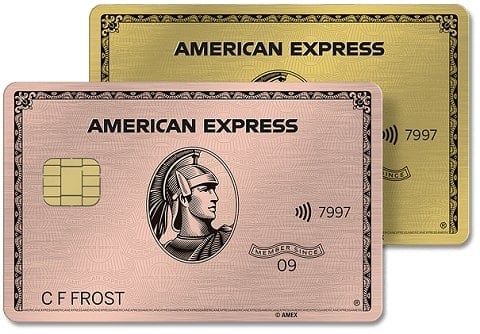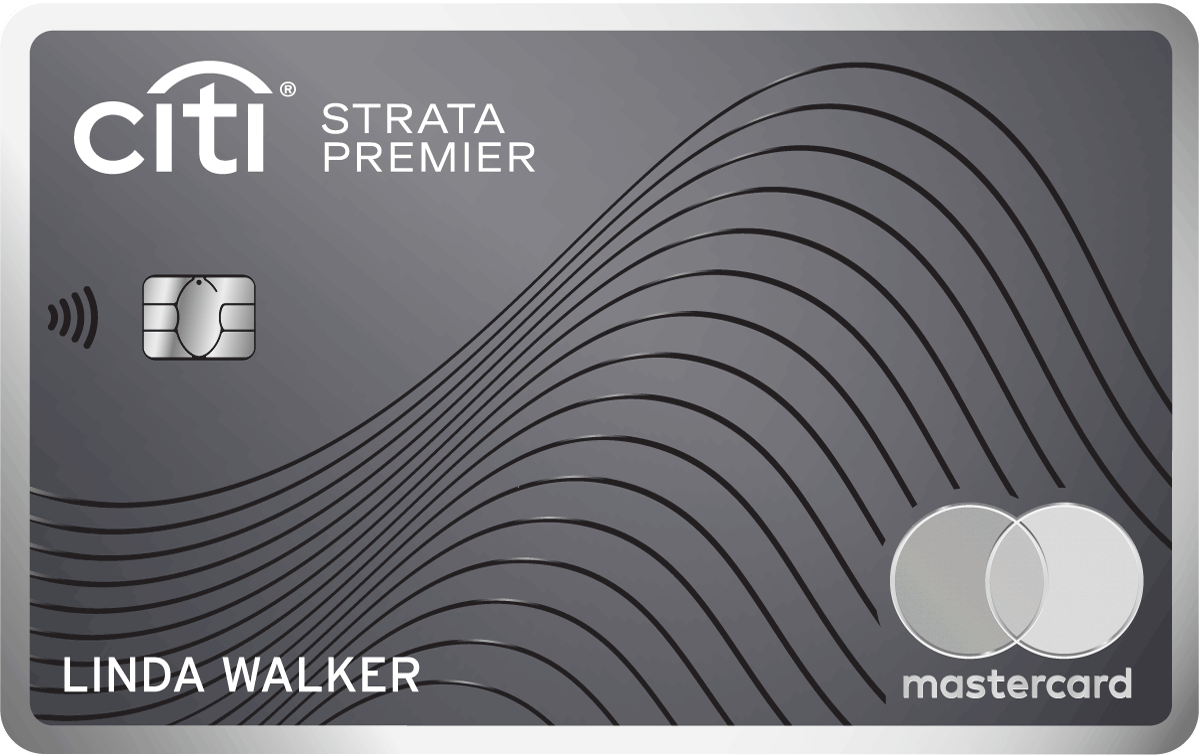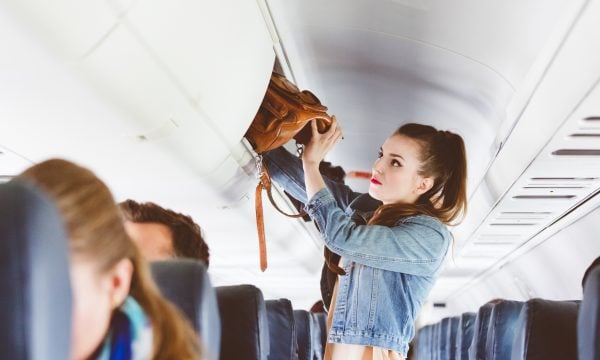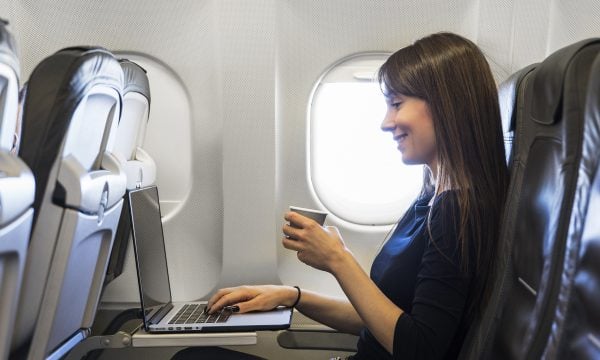Is First Class Worth It?
Use points and miles to shave a little bit off the cost of first class on international flights.
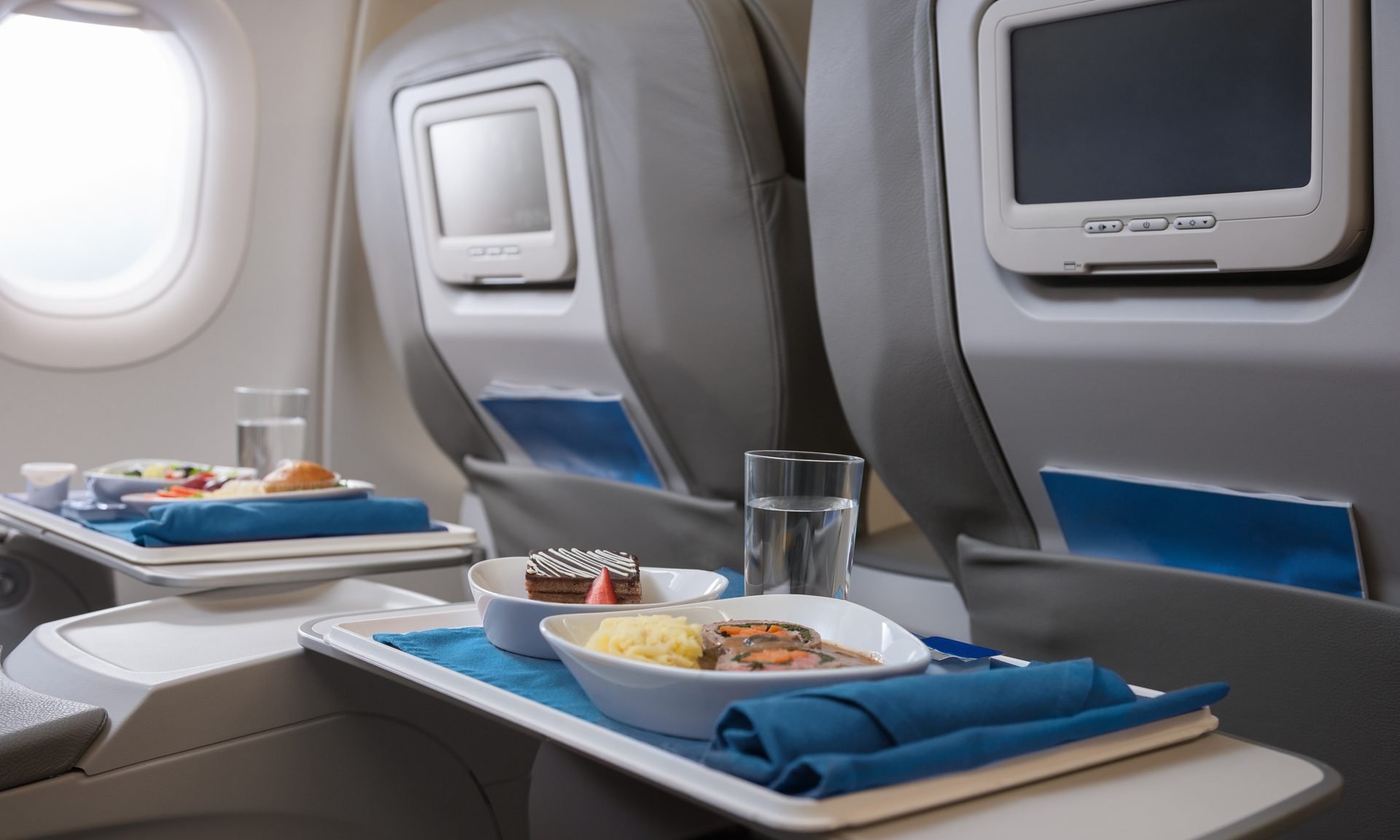
Many or all of the products on this page are from partners who compensate us when you click to or take an action on their website, but this does not influence our evaluations or ratings. Our opinions are our own.
We’ve all seen those happy flyers sitting up in the front, enjoying a hot towel and a glass of champagne while we trudge back to seat 42B. Comfort, relaxation and luxury — there’s no denying that first class will get you where you want to be in style, but is first class worth it?
Here's a look at the differences between economy and first class, domestic versus international first class and other options you may want to consider before your next flight.
The differences between economy and first class
The most obvious difference between economy and first class is the price. Generally, first class is more expensive than economy class, though the actual difference in price depends on the route, when you purchase the ticket and how many seats are available.
Economy class seats are fairly standard, while you can experience a variety of seats in first class. These may be similar to reclining leather chairs but can also move to lie down to a fully flat bed.
First class passengers can also expect different food when flying, complimentary alcohol and more attentive service.
On the ground, first class tickets can come with:
- Airport lounge access.
- Expedited security lines.
- Extra free checked luggage.
- Fast-track immigration process.
- Separate check-in service.
In short, first class tickets provide a wealth of benefits for the additional cost, but you’ll want to be sure you’ll take advantage of the extra perks.
» Learn more: A beginner’s guide to flying in business or first class
Get the 'Cheat Codes' to Cheaper Travel
Unlocking the secret to saving a ton on travel is easier than you think. 📤 Our free newsletter shows you how in 5 min. or less.

Domestic vs. international first class
There are also huge differences between domestic versus international first class, both on the ground and when flying. If you buy a ticket from San Francisco to Miami thinking you’ll get a lie-flat seat, you'll be disappointed to find that you’ll be spending five hours in a chair that simply reclines.
International first class products, on the other hand, are some of the most luxurious in the world. On some carriers, this means enjoying a shower mid-flight. On others, you’ll have an entire cabin to yourself, featuring a chair and your own separate bed. You can also expect amenities such as a chauffeur service and high-end airport lounge access.
Meanwhile, there are far fewer domestic first class features. Lounge access, for example, isn't always included except in some specific situations (such as flying a premium transcontinental route).
Seating is also usually fairly limited. Although some domestic first class routes will have seats that lie flat, for the most part, you can expect a leather lounger-type chair. Most of the time, you’ll receive a complimentary full meal with alcohol available as well.
You’ll also receive other benefits, such as a separate check-in line and additional free checked baggage.
You aren’t limited to just economy or first class when flying. The options you’ll find vary depending on the airline and where you’re going, but you may also want to consider business class or premium economy.
On long-haul international flights, business class is often a great alternative to first class — and they tend to be pretty similar. You’ll find a seat that converts into a bed, and some business class offerings include doors that turn your seat into a suite. You can also expect high-end food, complimentary alcohol and amenities such as pajamas and mattress pads.
Premium economy, meanwhile, functions similarly to domestic first class on long-haul international flights. It's a step up from standard economy and can feature different food, better alcohol and amenity kits. Premium economy seats tend to be similar to domestic first class seats. They’re larger than a regular economy seat and have a decent amount of recline but don’t lie down.
» Learn more: Delta Comfort Plus versus first class cabin
Is first class worth it?
The short answer to this question is that you’ll need to decide if it’s worth it based on your personal situation. First class can be a lot more costly than economy class, especially on international flights.
In a search, we found an American Airlines economy class ticket from Los Angeles to Paris for $1,180.

Eleven hours is a long time to sit upright in a cramped economy seat, but flying that same route in first class was almost sixteen times the price, coming in at $18,606.

For that rate, you’ll be able to experience Air France’s spectacular La Premiere product. But is it worth paying for the upgrade? It depends on how much you want the upgraded seat and experience, and whether you may be able to make a first class trip more affordable by booking with points or miles.
» Learn more: The best first class airline in the U.S.
Using miles to fly first class
If you want to fly in first class, you may want to consider redeeming miles rather than spending cash. Frequent flyer miles can help offset the costs and redemption rates can also be good.
For example, when we last checked, a first class flight from Houston to Frankfurt in Lufthansa’s first class came in at $12,707.

Instead of paying more than $12,000 for the flight, you can instead choose to redeem miles. That same flight will cost 87,000 Lifemiles and around $22 in taxes and fees.

This is a great value when compared with cash, and you can acquire Lifemiles by transferring your credit card points from American Express Membership Rewards, Citi ThankYou points, Bilt Rewards and Capital One Miles.
Here are some cards to consider:
Annual fee
$325.
$95.
$95.
Earn rate
• 4 points per $1 at restaurants worldwide (on up to $50,000 in purchases per year).
• 4 points per $1 at U.S. supermarkets (on up to $25,000 in purchases per year).
• 3 points per $1 on flights booked directly with airlines or through American Express' travel portal.
• 2 points per $1 on prepaid hotels and other eligible purchases made through American Express' travel portal.
• 1 point per $1 on other eligible purchases.
Terms apply.
• 5 miles per $1 on hotels, vacation rentals and rental cars booked through Capital One Travel.
• 2 miles per $1 on all other purchases.
• 10 ThankYou® points per $1 spent on hotels, car rentals and attractions booked through Citi's travel portal.
• 3 points per $1 on air travel and other hotel purchases.
• 3 points per $1 on supermarkets.
• 3 points per $1 on gas stations and EV charging stations.
• 3 points per $1 on restaurants.
• 1 point per $1 on all other purchases.
Still not sure?
» Learn more: The best airline credit cards right now
So, is flying first class worth it?
Flying first class can be an amazing experience, especially if you’re traveling internationally. Along with premium treatment in the airport, you can expect better seats, better food and better service onboard.
However, first class tickets can also be expensive. If you’re looking to save money, consider instead using points and miles to pay for first class flights, allowing you to enjoy some bubbles with cash in your pocket.
To view rates and fees of the American Express® Gold Card, see this page.
How to maximize your rewards
You want a travel credit card that prioritizes what’s important to you. Here are some of the best travel credit cards of 2026:
- Flexibility, point transfers and a large bonus: Chase Sapphire Preferred® Card
- No annual fee: Wells Fargo Autograph® Card
- Flat-rate travel rewards: Capital One Venture Rewards Credit Card
- Bonus travel rewards and high-end perks: Chase Sapphire Reserve®
- Luxury perks: American Express Platinum Card®
- Business travelers: Ink Business Preferred® Credit Card
Article sources
NerdWallet writers are subject matter authorities who use primary,
trustworthy sources to inform their work, including peer-reviewed
studies, government websites, academic research and interviews with
industry experts. All content is fact-checked for accuracy, timeliness
and relevance. You can learn more about NerdWallet's high
standards for journalism by reading our
editorial guidelines.
Limited Time Only: Earn $1,000 Toward Travel!
Capital One Venture Rewards Credit Card 
Travel

For a limited time, the
Capital One Venture Rewards Credit Card is offering new cardholders an especially rich bonus: Enjoy $250 to use on Capital One Travel in your first cardholder year, plus earn 75,000 bonus miles once you spend $4,000 on purchases within the first 3 months from account opening - that’s equal to $1,000 in travel!
More like this
Related articles


